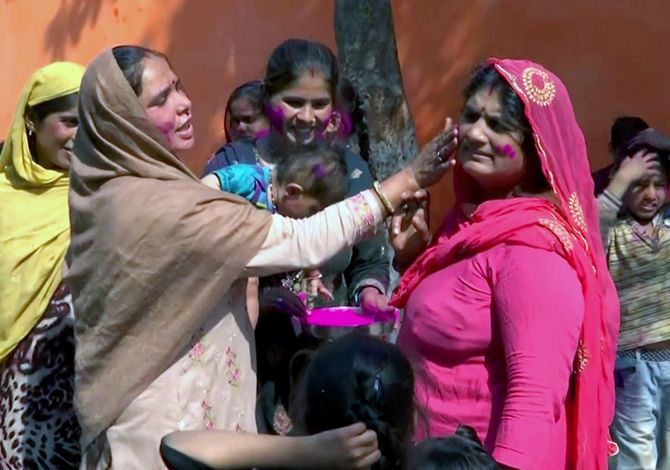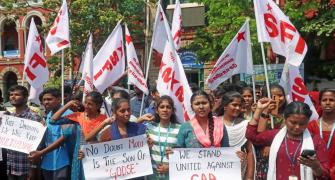Eligible applicants under the Citizenship (Amendment) Act 2019 (CAA) will be granted Indian nationality with retrospective effect as specified in the law, officials said on Tuesday.

A day after the rules for the implementation of the CAA were issued, the Ministry of Home Affairs launched a portal for submitting applications for eligible people to get Indian citizenship under the CAA.
In the portal, there are answers to Frequently Asked Questions (FAQs) about the submission of applications for the grant of citizenship under Section 6B of the Citizenship Act 1955.
On a question about the date from which the citizenship will be granted under the CAA, the MHA portal said, 'Persons granted citizenship by registrar neutralisation under Section 6B of the Citizenship Act 1955 shall be deemed to be a citizen of India from the date of his/her entry into India.'
When asked about this FAQ, a home ministry official confirmed that citizenship under the CAA will be granted with retrospective effect as prescribed in the law.
"The date of the applicant's entry into India will be the date of granting Indian citizenship under the CAA. It could be 10 years ago, 15 years ago or 25 years ago," the official said.
The government on Monday implemented the Citizenship (Amendment) Act, 2019, notifying the rules to fast-track citizenship for undocumented non-Muslim migrants from Pakistan, Bangladesh and Afghanistan who came to India before December 31, 2014.
Now, Indian nationality will be given under the CAA to the persecuted non-Muslim migrants -- Hindus, Sikhs, Jains, Buddhists, Parsis and Christians -- from the three countries.
The application from the person covered under the CAA will have to be made under section 6B of the Citizenship Act, 1955.
This application will be available online at indiancitizenshiponline.nic.in and on mobile application namely CAA-2019.
The applicant has to submit the application online to the Empowered Committee through the District Level Committee (DLC) headed by the Designated Officer (DO).









